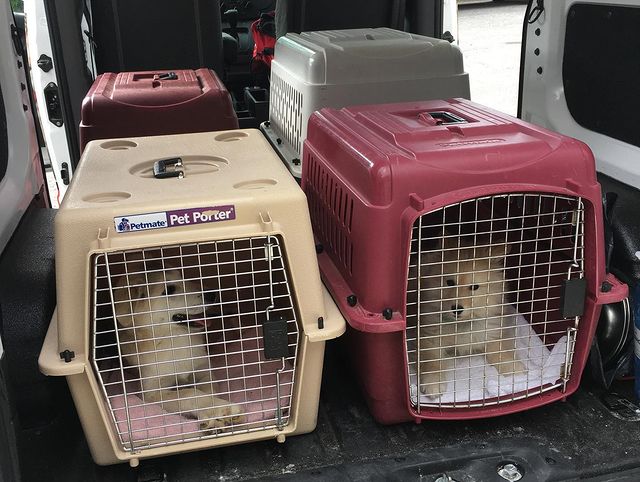June 23, 2022
Welcoming Northern Dogs
With life slowly returning to something that resembles normal, most OHS programs have been reopened over the past couple of months. Camps and tours for children and youth, tours, birthday parties, in-person dog training and other important programs are once again operating, building a better future for Ottawa’s animals by creating a better generation of pet owners.
Last week, we resurrected our Northern dog transfer program. The program brings northern dogs to Ottawa to be rehomed.
Animal transfer is an important part of animal welfare. While most areas of North America have their dog population well under control, some pockets of overpopulation remain. It makes sense to transfer dogs from high-population regions to low-population regions. It is a win-win strategy. Dogs that might otherwise be euthanized find homes hundreds of kilometres away, and people in low-population areas are less likely to turn to backyard breeders and puppy mills to acquire a pet.
There are some concerns with transfers though. There are many diseases and parasites that are endemic in southern regions that are not found in Canada. Bringing those diseases and parasites north puts Ottawa’s dogs at risk. Despite the risk, many well-meaning groups still bring dogs in from these regions — sometimes without doing anything else to assist the community in solving their dog overpopulation issue, thus perpetuating the problem.
Because of the disease risk, the OHS does not import dogs from southern regions and always provides support to the originating community to assist them in their work to reduce local overpopulation.
The Territories, northern Ontario and Quebec are regions where dogs continue to suffer due to overpopulation. Importing from these regions is much safer for our dog population in Ottawa. The sole concern is rabies, and that can be managed by quarantining incoming dogs for 14 days.
Just last week, OHS volunteers met volunteers from a northern Ontario community halfway — in Sudbury — to bring dogs to Ottawa for adoption. The OHS in turn provided much needed funds for that community to address their overpopulation issues. In the meantime, dogs that would otherwise go uncared for will find loving homes in Ottawa. That is a win for everyone, especially the dogs.
Bruce Roney
President & CEO

